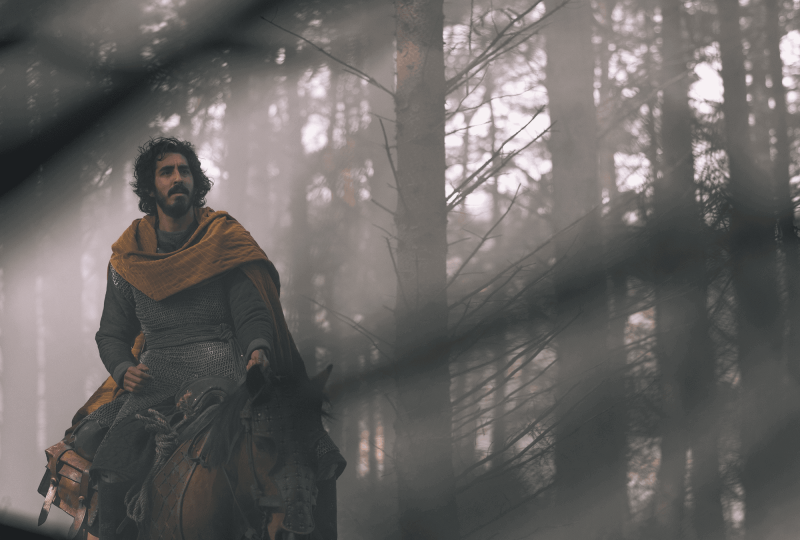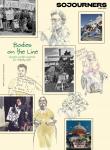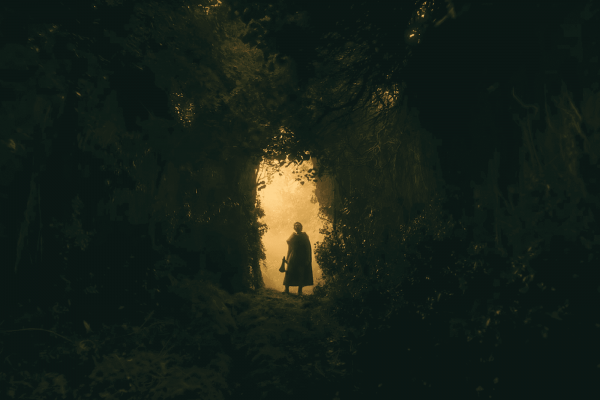WHEN I FIRST read Gwendolyn Brooks’ poem “truth” early last year, I did a double take to make sure it wasn’t written in 2021. The 1987 poem personifies its titular subject as a living being that can knock its “firm knuckles / Hard on the door,” whose arrival brings an equal mix of anticipation and apprehension. Brooks describes multiple responses one can have to the arrival of truth. For those who have made peace with lies, the truth can be threatening: “Shall we not dread him, / Shall we not fear him / After so lengthy a / Session with shade?” Even for those who have longed for truth’s arrival, blissful or willful ignorance seems to be a better alternative than the terror of having to engage truth head on: “Shall we not shudder?— / Shall we not flee / Into the shelter, the dear thick shelter / Of the familiar / Propitious haze?” Regardless, Brooks makes one thing clear: The question is not a matter of if truth will come, but when. The most important question of our lives then becomes, how are we to greet it?
In the poem, Brooks doesn’t name the truth that haunts her—although since she first published it in 1949, as the stage for the civil rights movement was being set, one possibility might be the systemic mistreatment of Black people and white people’s willful obliviousness to it. I found the poem to be a peculiar comfort in this time as we try to adjust to an ever-shifting landscape of new realities and reckon with truths about ourselves we might otherwise prefer remain hidden.
Similarly, several films offer insight into how people receive truth’s advent. Two that I see resonating with themes in Brooks’ poem: Jane Campion’s subversive, Oscar-nominated Western, The Power of the Dog, features a protagonist who attempts to hide the truth, only to face tragic consequences for his refusal to engage. Meanwhile, David Lowery’s spellbinding epic The Green Knight showcases a character who knows the truth fully well and yet willingly keeps it captive or attempts to smother it for his own purposes. Brooks’ poem acts as a helpful blueprint of how culture has responded to truth in times past—and how those responses reveal a yearning for more restorative interactions with truth.
The Green Knight poignantly captures the gloom and foreboding that comes with having to confront unpleasant inner truths. When viewers first see the protagonist Gawain (Dev Patel), a nephew of King Arthur, he’s ambitious to prove himself worthy of his family. His chance comes sooner than expected when, during a feast hosted by Arthur and Queen Guinevere, the eponymous Green Knight rides into the great hall. Driven by his hunger for glory, Gawain impulsively delivers a brutal blow to the Green Knight—but as a result, “one year hence” he must face the knight again, an encounter that will surely be fatal for Gawain.
Gawain spends most of that year wallowing in despair and dissipated behavior. But he cannot outrun the truth. As the year comes to a close, he begrudgingly saddles up and goes to meet his verdant executioner.
culture_the_knight_horse.png

Visually, The Green Knight cleverly embodies the disquietude that comes with truth’s arrival. In the opening scene (which does not tie into the plot apart from neatly summarizing visually the film’s themes), the camera focuses on a hovering crown, slowly descending toward a robed Gawain who sits stoically on a throne. As the crown falls, the screen darkens; when it lands on Gawain’s head, he is instantly lit on fire, his burning face the only light in the room. Consider this through the lens of the first stanza of Brooks’ poem: “And if sun comes / ... Shall we not fear him?” The descending crown, like the rising of the sun or a dawning truth, comes rife with apprehension and tension.
If The Green Knight put a magnifying glass to our natural responses to truth, The Power of the Dog articulates our tendency to flee from truths that will expose us. The film focuses on two wealthy ranchers, brothers George (Jesse Plemons) and Phil (Benedict Cumberbatch) Burbank. While George is soft-spoken and gentle to a fault, Phil is mean, prickly, and as unsavory as raw cowhide. The relationship between the two brothers sours when George marries inn owner Rose Gordon (Kirsten Dunst) and she and her adolescent son Peter (Kodi Smit-McPhee) become part of the family. It is easy to initially paint Phil as simply evil, but midway there’s a revelation of something that Phil has suppressed. We realize there’s something deeper driving the rancher’s rage. His cruelty is seen in a new light as it is revealed that actions he takes to isolate others stem from his own sense of confinement.
Peter learns Phil’s secret, and as Phil fashions a lasso, the two engage in intimate conversation and share a cigarette. The scene, dark with only flickers of light illuminating their faces, is charged with tension. But the moment passes with Phil unable to allow himself the opportunity to acknowledge his truth.
The second stanza of Brooks’ poem reads:
Though we have wept for him,
Though we have prayed
All through the night-years—
What if we wake one shimmering morning to
Hear the fierce hammering
Of his firm knuckles
Hard on the door?
While Phil comes to the brink of opening the door to the “fierce hammering” of Peter’s inquiry and confronting the reality of his life, he instead chooses to make his bed in the isolation of unacknowledged truth.
culture_the_knight_fire.png

On the surface, it seems that the stories of a repressed rancher and an ambitious knight-to-be have little common ground. But the narratives of Phil Burbank and Gawain both embody an ache for a better way than dread and suppression to engage with truth.
The ending of The Green Knight offers something in the way of hope and perhaps a glimpse of the gospel. As Gawain heads to meet the Green Knight, he wears a girdle his mother gave him that has the power to protect him from harm. But he has a vision of his future in which he gains all he desires but is hated by his people. Gawain realizes that the chasm between a royal title and his flawed character would be too great. True courage and honor means accepting the consequences of his actions, of his truth, even if it costs him everything. He takes off the girdle and faces death.
The works of Brooks, Campion, and Lowery attest that facing the truth can be uncomfortable, upsetting, and often disruptive. Yet it is preferrable to “snug unawareness,” as Brooks puts it, or leaving truth at the door. Indeed, in our faith and in our being, to acknowledge and wrestle with truth is how we find fuller life.

Got something to say about what you're reading? We value your feedback!







